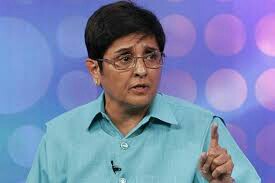Kiran Bedi
Kiran Bedi introduced a number of reforms in the management of Tihar Jail, Delhi when she was the Inspector General of Prisons during the years 1993-1995. The various programmes introduced by her under this mission witnessed positive changes in the lives of prisoners. This short stint of her is remembered as a golden period in the history of the prison and won her the Ramon Magsaysay Award for 1994 and the Jawahar Lal Nehru Fellowship. The last position that Kiran Bedi held in the IPS was that of the Director General of India's Bureau of Police Research & Development. She was awarded an honorary degree of Doctor of Law in acknowledgment of her “humanitarian approach to prison reforms and policing” in May 2005. Two years later, Kiran Bedi decided to voluntarily retire from the police services and the Government of India granted her permission to do so. On December 25, 2007, she retired to dedicate herself to social issues.
Kiran Bedi was born and bred in the holy city of Amritsar, Punjab. She is a social activist and the first woman IPS officer in the country. She has not only served her department with full conviction, but has also made whole-hearted contribution to many social causes. A former tennis player, the multi-talented social activist from Amritsar is credited for bringing down the number of crimes against women in West Delhi during her service. She introduced several reforms at Tihar Jail, which gained worldwide acclaim and won her the Ramon Magsaysay Award in 1994. In 2003, Kiran became the first Indian woman to be appointed as a Police Advisor to the Secretary-General of the United Nations in the Department of Peace Keeping Operations. She resigned in 2007 to focus on social activism and writing. She has written several books, and runs the India Vision Foundation.

Comments
Post a Comment